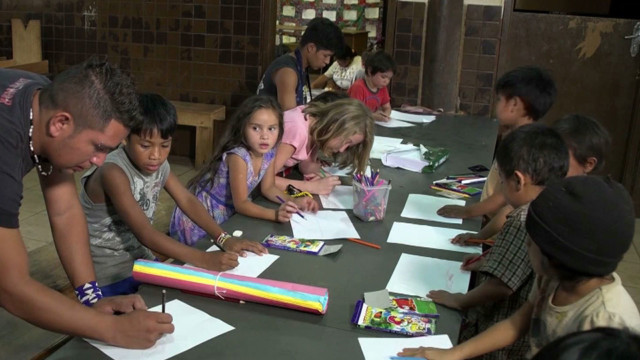The U.N. organization, UNESCO, said more than 2500 languages around the world are in danger of disappearing. Nearly 200 of them are in Brazil, where many indigenous groups are watching their cultures fade away.
But some are fighting that trend– and taking advantage of a law that lets them set up their own schools. CGTN’s Paulo Cabral visited one outside Sao Paulo.
This is a school for indigenous Mbya Guarani children in Brazil. Here, all activities for kids up to the age of six are in their original language and use teaching materials created by Guarani.
Only after they start to attend a regular public school do they begin to have classes in Portuguese, Brazil’s official language.
Their indigenous teacher said keeping their language alive is essential to maintaining their culture in the Tekoa Pyau village where about 700 Indians live just outside Brazil’s biggest city, São Paulo, which has about 12 million people who speak Portuguese.
“We encourage our children to speak our language as much as possible, at home with their parents, for example,” said Tupa Xondaro, who teaches Mbya Guarani. “Our people have already adopted the clothing styles from outside. We can’t forget our language.”
The school coordinator said their mission is to keep alive a language and tradition that has been resisting change for centuries.
“When the Portuguese arrived in Brazil 500 years ago, we spoke our own language,” said Indigenous School Coordinator William Macena. “It is part of our identity, and it has to be preserved. We can’t let it disappear.”
According to the United Nations, there are 190 endangered languages in Brazil, all of them spoken by indigenous communities.
The Endangered Languages Project said Mbya Guarani is considered vulnerable, with only about 6,000 speakers.
Efforts are being made for its preservation, but other languages with only a handful of speakers are running an actual risk of extinction.
For many years, Brazil’s official policy was to get all indigenous populations to speak only Portuguese.
“Only in the late 1980’s, after Brazil adopted a new constitution, were indigenous people allowed to have schools with classes taught in their own languages and to use their languages in books and on radio stations,” said linguist and anthropologist Benedito Prezia.
“Before that, Brazil enforced a law from the 1930’s that forbade the use of any language in the country other than Portuguese,” he added.
Many indigenous people and NGOs have been working to preserve Brazil’s remaining languages – so that important elements of traditional cultures are not lost forever.
 CGTN America
CGTN America

